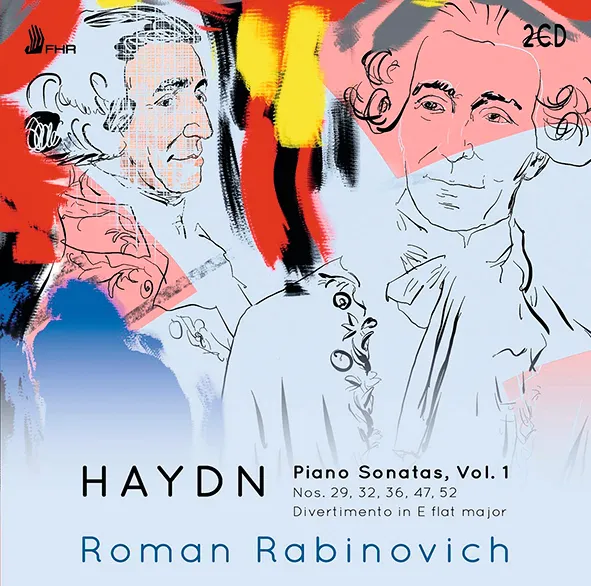
Haydn Piano Sonatas Nos 29, 32, 36, 47 and 52; Divertimento in E flat Roman Rabinovich (piano) First Hand Records FHR71 100:39 mins (2 discs)
How many piano sonatas did Haydn write? In the liner-note to this disc Jonathan Summers writes that although more than 80 have been attributed to him, a likelier figure is 62, and that the composer himself deleted some early ones from the catalogue as being ‘not worth preserving’. Moreover, he didn’t actually use the term sonata until 1771, using instead partita and divertimento before that date. And there’s an interesting divergence of view on the Divertimento which Roman Rabinovich includes in this set. Summers dismisses its first movement as suffering from a ‘lack of musical invention’, with the remainder possessing charm but being ‘inconsequential’; but in an interview Rabinovich has said he loves its unpretentiousness. Clearly the two men did not talk.
At all events, this first volume in what will be a complete set of the Haydn piano sonata oeuvre is both fascinating and hugely impressive. Before moving with his family to Israel when he was eight, Rabinovich grew up in Tashkent, where he got an excellent grounding in the Uspensky School for Gifted Children whose other distinguished luminaries have included Yefim Bronfman, Stanislav Ioudenitch, Alexei Sultanov, and Behzod Abduraimov. Rabinovich is definitely of comparable calibre. His sound is bright, muscular, and clean, and he brings out all the wit and delicacy of Haydn’s invention; his articulation is immaculate no matter how fast he goes; and he responds imaginatively to those moments when Haydn’s experiments seem designed to puzzle his interpreters. Where ad lib ornamentation is called for, he applies it sparingly, with exquisite shading. And what a pleasure to encounter works which are seldom heard in recital. This ‘complete’ Haydn may oust Rudolf Buchbinder’s magisterial set as the benchmark recording.
Michael Church